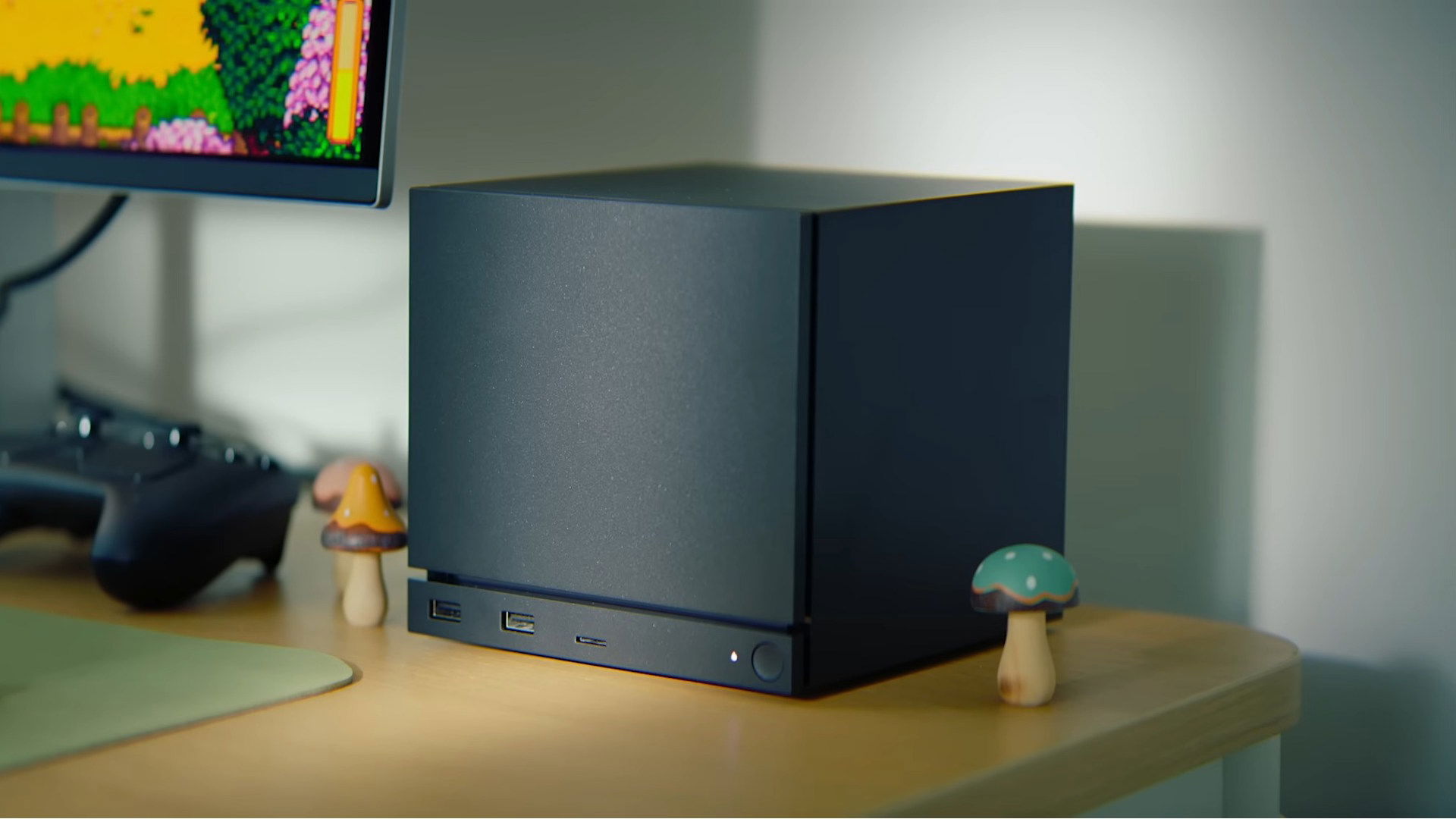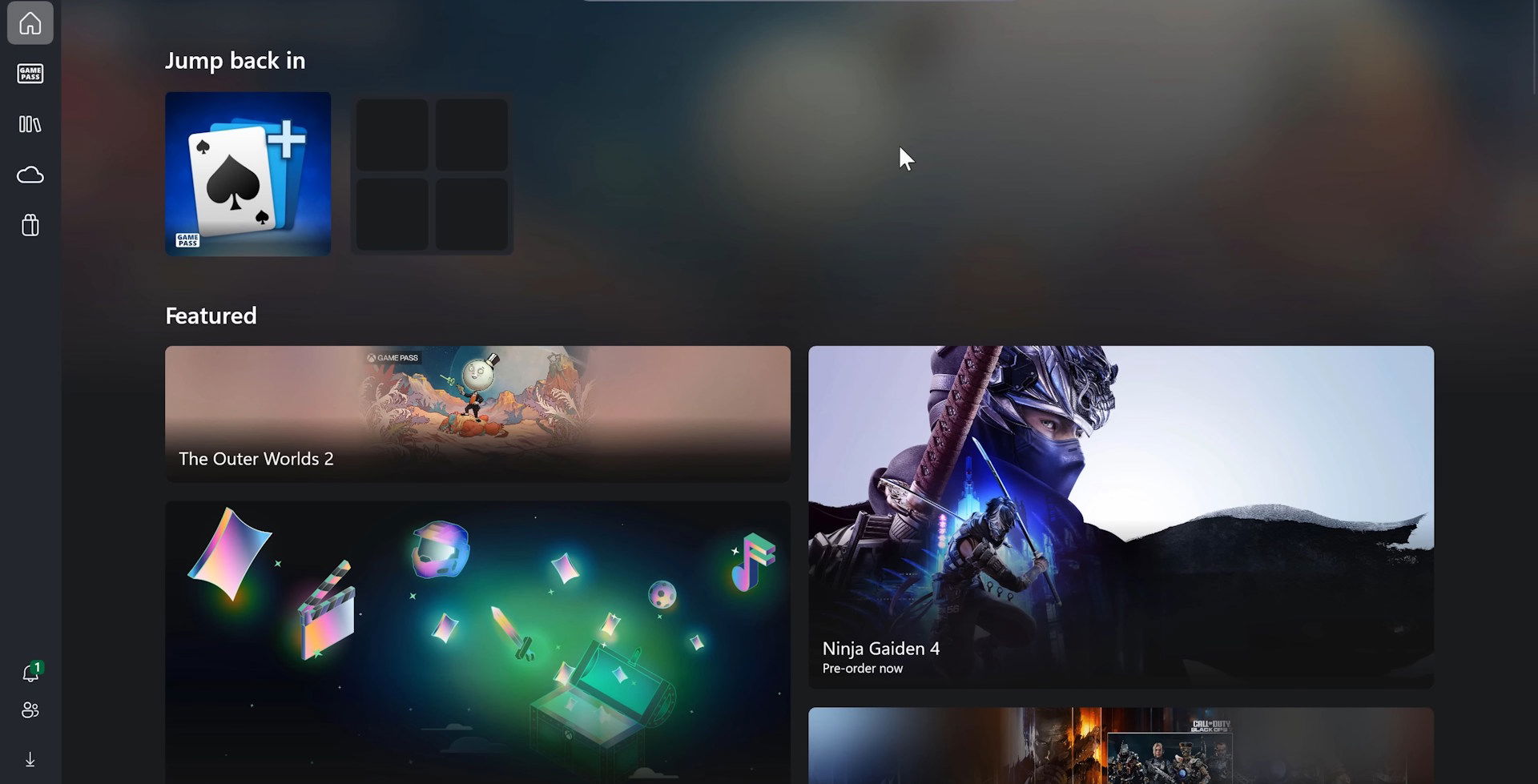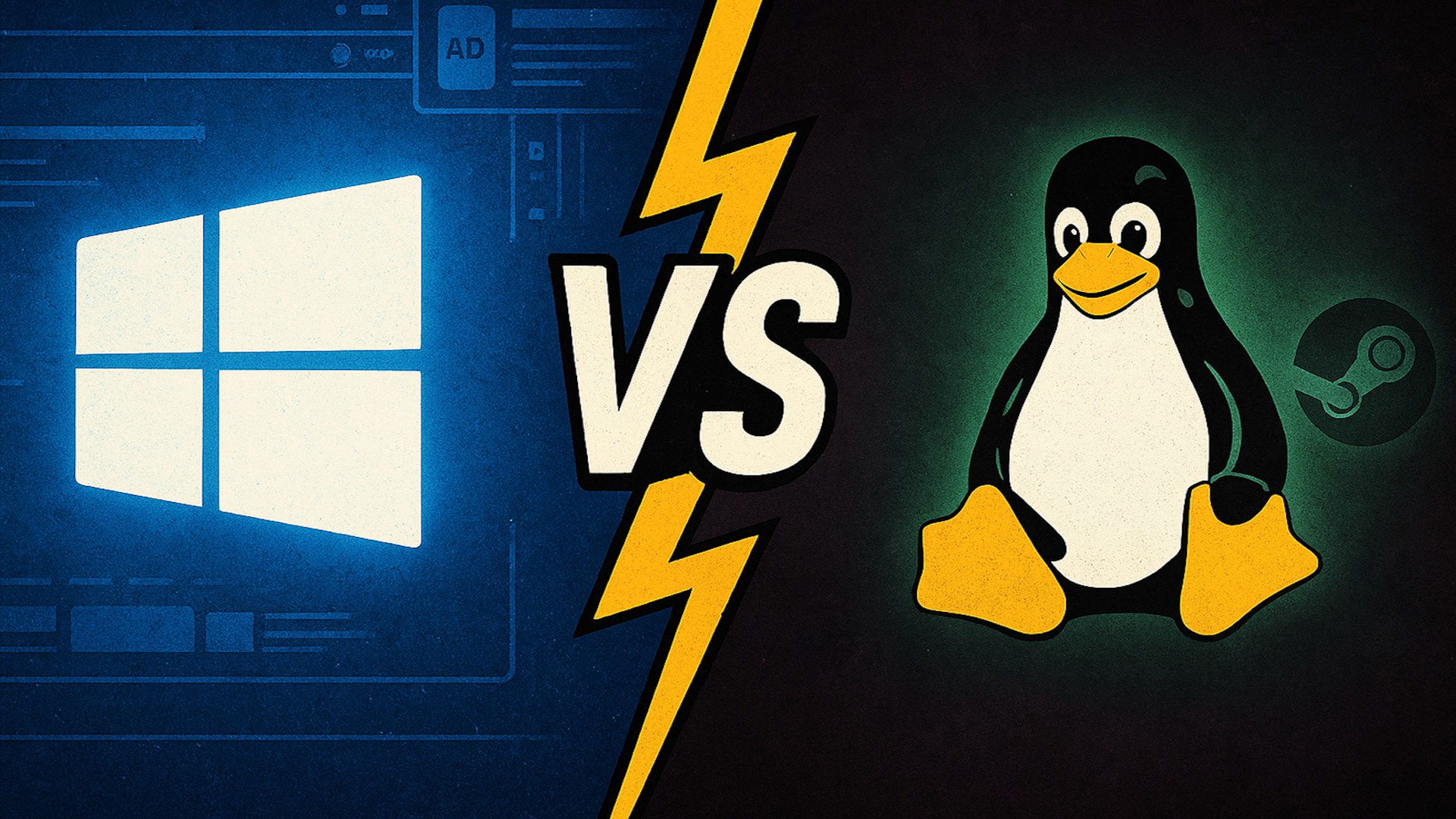For months I have watched the internet argue about PC gaming, with the never-ending Windows versus Linux debate always being mentioned. And ever since Linux gaming has taken the bullhorn, thanks to Valve’s involvement, the conversation is louder than ever.
You can barely mention PC gaming without someone jumping in to praise Linux or remind you that Microsoft’s Windows is constantly taking 1 step forward and two steps back. I have wanted to speak on this for a long time, but I usually held back because the pushback never stops. I am past that now. It is time to talk honestly about what is happening.
There’s No Denying That Linux Gaming is on the Rise
Linux gaming has come a long way from the days where Nvidia or AMD wouldn’t even consider developing drivers for the OS. Valve’s Proton and SteamOS has changed the landscape in a major way, and games, past and present, run shockingly well. Many players find the experience nearly seamless. Indies, older titles, and anything built with Valve’s ecosystem in mind often work without much trouble.
But the idea that Linux is completely ready to replace Windows for mainstream gaming does not match reality.
Windows is still the primary target for game development. DirectX is still at the center of most pipelines. Publishers still rely on Windows specific anti cheat systems, Windows specific launchers, and Windows specific backend services. While Valve is making tremendous progress with Proton, but it still cannot break through custom encryption or kernel level restrictions. When a game relies on those methods, Proton is pretty much useless. That is why this debate refuses to die. Linux makes progress, then a new wave of games appears and half of them refuse to run or require a maze of workarounds.

Microsoft’s Self-inflicted Problem
There is no way around it. Microsoft has lost its direction. PC gamers have spent decades asking for one thing; A clean gaming focused version of Windows without background clutter, advertising, intrusive services, and nonstop system noise. Instead, we got the current Windows 11 experience with a Big Picture inspired UI that feels slapped together rather than designed. It does not feel like a gaming OS, and it does a rather poor attempt to imitate ideas rather than lead with its own.
This comes from the same company that owns Xbox. The same company that once helped SEGA power the Dreamcast. Somewhere along the way, Microsoft stopped being hungry. It stopped taking risks. It stopped being willing to start fresh. That hesitation has consequences. It hurt Windows 8. It hurt Windows 10. It is hurting Windows 11 today. It is holding back PC gaming more than the company seems willing to admit.
And it’s mind boggling. Especially when Microsoft has an answer in front of its face. Why not bring the OS that is powering the Xbox Series X|S to the PC? It’s literally what Valve has done with the Steam OS; a modified and optimized version of Linux that’s made for playing games. Microsoft can literally do the same thing with Windows, which is the exact thing that PC gamers have been asking for.
Then they hype up this Full Screen experience for the Xbox Ally devices, which was a failure in my eyes. It didn’t really much to make people want to use Windows 11 on a handheld PC gaming device. Which is why we started seeing articles and videos of how or why they installed Steam OS or an alternative onto the device. Which is completely the opposite of what Microsoft wanted.
Yet Microsoft continues to insist it wants to push PC gaming forward. The reality does not line up with the promise. That gap is exactly why Linux keeps gaining attention.

And for the record, I am not against Linux gaming at all. I respect what Valve has built with SteamOS and Proton. I respect what the Bazzite team has done by bringing a Steam like experience to hardware that isn’t the Steam Deck.
I run Bazzite on a mini-PC in my living room, and on my ROG Ally X. I own two Steam Decks, one of which my son decided it was now his. For work, I rely on CentOS, RHEL, and Ubuntu every day. I run a Proxmox (Linux-based virtualization) cluster at home to run various virtual machines. My Plex Media server was moved from Windows to Ubuntu because I was tired of all of the issues running it on Windows. Point being that Linux has been a part of my life for years, and it will continue to be.
Linux gaming is improving faster than anyone expected. Windows gaming is stumbling because of Microsoft’s choices. That is the core of the debate. That is why the argument will not go away.
The Crux of it All
I am not telling people to abandon Windows. I am not telling people to switch to Linux. Use what works for you. Use what fits your hardware, your workflow, and your tolerances. I use Windows because not only have I been using it since the PC and MS DOS days, but it’s also still the best place for PC gaming, even if the strides that has been made with Linux. But it is impossible to ignore the fact that Microsoft has created many of the problems the PC gaming community is facing. And everyone is watching in real time while it happens.
Linux is moving forward while Windows is stumbling. And until the major publishers decide to support Linux as a first-class platform, Windows will remain the most reliable place to play. But if Microsoft keeps making the same mistakes, that balance is eventually going to shift. Valve and others have already proven that Linux based gaming is viable, easier than ever to enjoy and genuinely competitive.
We are entering a very interesting time for PC gaming. One operating system is climbing. The other is having an identity crisis. Meanwhile, it’s the PC gamers that can see exactly who is pushing the industry forward and who is holding it back.


